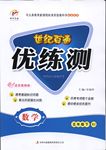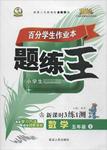题目内容
听下面5段对话。每段对话后有一个小题,从题中所给的A,B,C三个选项中选出最佳选项,并标在试卷的相应位置。听完每段对话后,你都有10秒钟的时间来回答有关小题和阅读下一小题。每段对话仅读一遍。
1.What are they talking about?
[ ]
A.Driving in England.
B.How to drive a car.
C.Whether to have the right to drive a car in England.
2.What does the woman mean?
[ ]
A.Mary is ill.
B.Mary thinks well of the concert.
C.She hs no chance to talk to Mary.
3.Does Jane know Arvid Brown?
[ ]
A.She doesn't know him.
B.She knows something about him.
C.She knows him very well.
4.What can we learn from the conversation?
[ ]
A.They are neighbours.
B.They are classmates.
C.They are not from the same country.
5.Where does the conversation probably take place?
[ ]
A.In a clothing store.
B.At the woman's home.
C.In the sitting room.
听下面6段对话或独白。每段对话或独白后有几个小题,从题中所给的A,B,C三个选项中选出最佳选项,并标在试卷的相应位置。听每段对话或独白前,你将有时间阅读各个小题,每小题5秒钟;听完后,各小题给出5秒钟的作答时间。每段对话或独白读两遍。
听第6段材料,回答第6~7题。
6.What is the man going to do tonight?
[ ]
A.Come to the woman's home for dinner.
B.Go to a concert with the woman.
C.Go to a concert with his sister.
7.What does the man think of the woman?
[ ]
A.He thinks she is a good cook.
B.He thinks she does everything very quickly.
C.He thinks she isn't good at cooking.
听第7段材料,回答第8~9题。
8.What is the woman worried about?
[ ]
A.Mary's carelessness.
B.Bad traffic
C.Mary's being late.
9.What do you know about Mary from this conversation?
[ ]
A.She is a good diver and always very careful.
B.She is a careless girl.
C.She likes driving fast.
听第8段材料,回答第10~12题。
10.Where will they have dinner that night?
[ ]
A.In the hotel.
B.At the airport.
C.In a restaurant nearby.
11.What kind of food are they going to eat?
[ ]
A.American food.
B.Chinese food.
C.French food.
12.How many people will have dinner with the two speakers?
[ ]
A.Three. B.Four. C.Five.
听第9段材料,回答第13~15题。
13.Where does the conversation probably take place?
[ ]
A.At school. B.At home. C.In the office.
14.How many hours will the girl work a day?
[ ]
A.2. B.4. C.6.
15.How much could she get in a week?
[ ]
A.24 dollars. B.80 dollars. C.120 dollars.
听第10段材料,回答第16~18题。
16.Why is there no performance?
[ ]
A.Because the audience want a repayment.
B.Because the actors are sick.
C.Because there is no electricity.
17.When will tickets be exchanged?
[ ]
A.This evening.
B.Next Tuesday.
C.Tomorrow morning,
18.What can't they do according to the message?
[ ]
A.Get their money back.
B.Come to see the performance tomorrow morning.
C.Come to see the performance next Tuesday.
听第11段材料,回答第19~20题。
19.Where does the sandwich come from?
[ ]
A.England. B.America. C.Germany.
20.From the passage we learn that ________.
[ ]
A.the sandwich has a long history
B.the sandwich was invented by Americans
C.the sandwich is pretty new to us
解析:
|
A;C;B;C;A;C;A;B;A;C;A;A;C;B;C;C;C;B;A;A Text 1 W: Do people drive on the right in England? M: No, you mustn't drive on the right there. Text 2 M: What did Mary think of the concert last weekend? W: She hasn't been around this week. Text 3 M: Jane, have you met Arvid Brown? I think he is going to your school. W: Oh, that Arvid. I've heard a lot about him, but we've never actually been introduced. Text 4 W: Why so early? M: Early? It's 3 o'clock now. School starts at 8:45 in the morning and ends at 3 in the afternoon. W: In my country, we go to school from 8 a. m. until 5 p. m. M: Gosh! Text 5 W: What size do you wear? M: A twelve. W: Oh, you're lucky. I have just the right size in store. Here it is. Why don't you try it on? Text 6 W: When can we expect you for dinner? Can you come tonight? M: Not tonight. I promised to go to a concert with my sister. W: Well…How about Friday then? M: That sounds fine. W: Good. Shall we say seven o'clock? M: I'll be there! You're still a wonderful cook, aren't you? W: That'll be for you to decide. I've got a new dish that I want to try out on you. M: I'm ready. I think I'll fast all day Friday! Text 7 W: There's a good chance that Mary will get home today. M: Yeah. I had a letter from her friend, Susan, yesterday, and she said that Mary would probably arrive today. W: Well, I hope she drives carefully. You know how the traffic is this time of year. M: Oh. Mary's a good driver W: True, but, nonetheless, that doesn't mean that all the other drivers are careful. There are a lot of wild drivers out there. M: I have confidence in Mary. She's very good about driving carefully. Text 8 W: We've been having our meals at the hotel all the time. How about going out for dinner tonight? M: What a wonderful idea! W: What kind of food would you like to eat, Chinese food or American food? M: We are used to Chinese food, but as we are in England, we would like to have something English for dinner. What about you? W: Please don't worry about me. OK, let's have American food for dinner. There is a very famous restaurant nearby which serves very good food. Is that all right with you? M: That's fine with me. W: Today is Saturday. The restaurants are usually very crowded and always full in the evening. I'm going to order a table for five right now and will be back in a few minutes. M: It's very kind of you. Text 9 M: Have you ever worked before, Ruth? W: No, I've never got a job before. M: How old are you? W: Twenty. M: Are you interested in a part-time job? W: Yes, I am. M: It's very busy here in the evening. You have to work very fast and there is a lot of pressure. W: That's no problem. M: Do you think you can be here at four o'clock every afternoon? W: Ah, yes, I am always on time. M: The hours are four to eight, Monday through Friday. You'll take 6 dollars an hour. Is it OK? W: That's fine. M: Will you start tomorrow? W: Sure. Text 10 Ladies and gentlemen, we regret to announce that this evening's performance must be postponed due to the failure of our electrical system. Those people wishing a repayment of their money may go to the box office after this announcement. Members of the audience who wish to exchange their tickets for the performance next Tuesday evening should appear at the box office tomorrow morning between 8:30 and 10 o'clock. Text 11 Many people think the sandwich came from England in the eighteenth century. Others say sandwiches are an American invention. The truth is that this type of food has been with us for thousands of years. It is only its name that is not very old. A British nobleman named John Montagu, the Earl of Sandwich, loved to play cards and didn't like to stop his game for meals. When he was hungry he asked his servant to bring him a piece of meat between two pieces of bread; this way he didn't have to use a fork and knife, and his hands stayed clean. He gave his sandwich its name, and this way of eating soon became popular in Europe. |

 世纪百通主体课堂小学课时同步达标系列答案
世纪百通主体课堂小学课时同步达标系列答案 世纪百通优练测系列答案
世纪百通优练测系列答案 百分学生作业本题练王系列答案
百分学生作业本题练王系列答案 and pretty careful, too. I don't think we need to worry about her being careless.
and pretty careful, too. I don't think we need to worry about her being careless.
